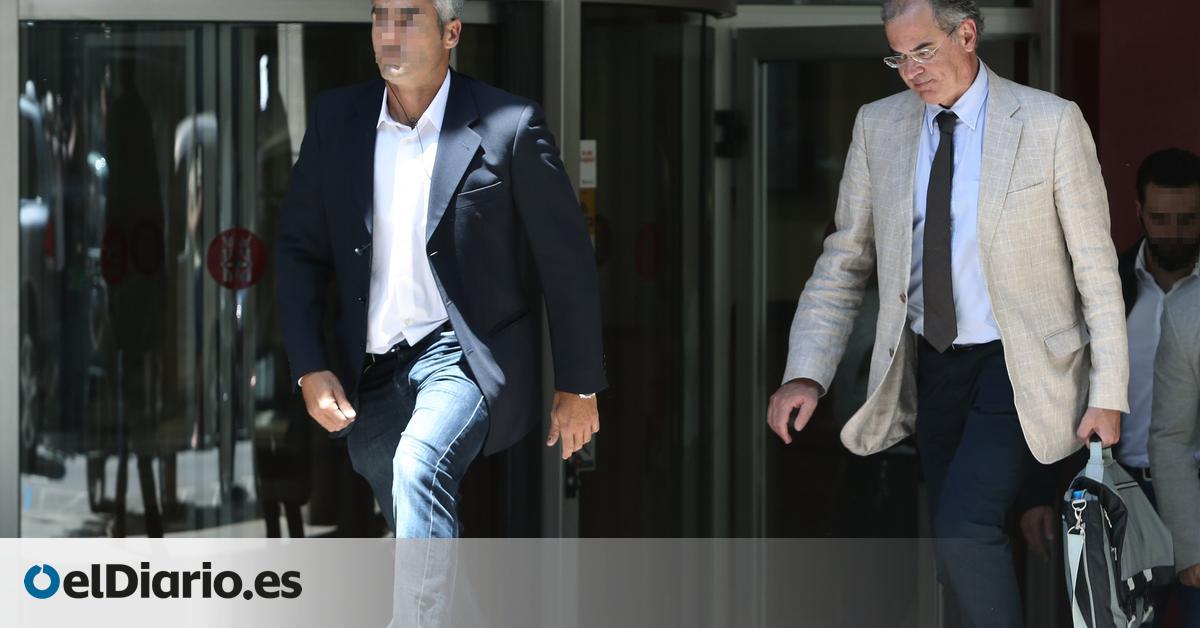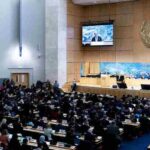
Barcelona judge Joaquín Aguirre continues his plan to try to exclude Carles Puigdemont from the amnesty. Last January, in the midst of negotiations on the rule, the judge reactivated the Russian plot of the process and pointed to the crime of treason (one of the exclusions of the law) against the former president. This Friday, with the amnesty already in force, he has opened a new separate piece (after the Barcelona Court prevented him from continuing to investigate) that includes a future petition to the Supreme Court to charge the former president.
“Activities could have been financed with public funds that would have the purpose of obtaining international support, economic aid and financial support from the governments of China and Russia for a supposed Catalan Republic,” reads the judge’s order, to which elDiario.es has had access. .
The maneuver against Puigdemont occurs in a case that has not produced new evidence against the former president (or against anyone) in more than three years. The indications remain the same as in 2019, when the judge opened the case of the Russian plot based on an audio found on the mobile phone of a former Convergència leader who, in a conversation in a restaurant, mentioned “10,000 Russian soldiers” supposedly prepared to help Catalonia in the event of independence. The judge also investigated the businesses of a Russian businessman living in Catalonia, but closed the case.
In four years of investigation, no more relevant evidence has emerged and the witnesses have reduced the credibility of the alleged Russian emissaries who were in Barcelona in 2017. The judge targeted Puigdemont, without formally charging him, in January, in the midst of amnesty negotiations, but He did not request a request from the European Parliament, a necessary step to investigate the former president because he was an MEP at the time. Judge Aguirre also cannot take Puigdemont’s statement as a defendant, since as an elected deputy in the Parliament the former president is qualified before the Catalan TSJ or before the Supreme Court. This last instance is the one before which the judge will present a reasoned statement, as the magistrate himself advances in an order.
In addition to Puigdemont, in the new separate piece the former president of the Generalitat Artur Mas is being investigated; former councilor Elsa Artadi; the deputy of Junts Francesc de Dalmases; the journalist Carles Porta; Puigdemont’s lawyer, Gonzalo Boye; the head of his former president’s office, Josep Lluís Alay; the expolitico of Convergence Víctor Terradellas; businessmen Aleksander Dimitrenko, Jordi Sardà, Miquel Casals (friend of Junts leader) and Zeus Borrell.
The instructor’s decision comes two weeks after the setback that the Barcelona Court gave him. The magistrates not only prevented Judge Aguirre from further investigating the alleged Russian plot of the process, but also left in writing reproaches for his way of investigating. The Aguirre Court’s mess with the Russian plot was added to other corrections in the course of the investigation in another media case of the judge, the Negreira case.
The separate piece that investigates the Russian plot had become, in the words of the court reviewing Judge Aguirre’s decisions, “a repository of police reports” that, in turn, only served to open new separate pieces, without the investigation will advance “substantially” with respect to the events initially investigated in 2020: the conversation in which the former convergent Víctor Terradellas outlined an alleged plan of 10,000 Russian soldiers to facilitate the independence of Catalonia, to which the judge gave credibility (unlike the interlocutors of Terradellas in the talks).
Given the lack of progress in the investigations (the judges even criticized the investigator for having kept the case in “six months of complete inactivity”), the magistrates annulled the last six-month extension of the case, which left Judge Aguirre in the position of having to decide whether to file the case or continue the procedures to go to trial with Terradellas’ recording as practically the only clue.
The crime of treason that the judge attributes to Puigdemont is excluded from the amnesty as long as it poses “an effective and real threat such as an effective use of force against the territorial integrity or political independence of Spain.” This point was even ruled out by the ruling of the Supreme Court’s process, which ruled out that the former Government councilors had “the most basic means to, if that were what they intended, to subdue the State” by describing the process as a “mere daydream.” .
In the same order, the judge gives two days to the Prosecutor’s Office and those investigated to rule on whether the crime of treason and embezzlement investigated in this new, separate piece of the Russian plot are included in the amnesty law.
The origin of the case
The first trace of the Russian plot of the process has been in the judge’s possession for more than five years. In the framework of an anti-corruption case in the Barcelona Provincial Council, the judge launched operation Voloh. There, several messages and documents from Terradellas were discovered, and he acknowledged before the judge that he had insisted on going to the Palau de la Generalitat in the critical days of October 2017 to meet with two Russian emissaries, whom he considered close to the Kremlin.
In the three meetings, all of them brief and occurring between October 20 and 26, one day before the failed declaration of independence, the Russians, always according to Terradellas’ version, first proposed Puigdemont’s then collaborator, Elsa Artadi. , economic and even military aid, although Tarradellas himself and later Artadi emphasized that no one in the Generalitat gave any credibility to the offers.
The National Police found the audio in which Terradellas referred to Russian soldiers in the 2018 records. It was not until mid-2019 that, after a change of judicial police in favor of the Civil Guard, he mentioned Terradellas’ considerations in a report. about the Russian soldiers, who serve the judge to open the separate piece of the Russian plot in August 2019.
The attempt to exclude Puigdemont from the amnesty has been marked by a controversial performance by the judge, who granted an interview to German television commenting on his hypothesis of the case. The Barcelona Court, with the support of the Prosecutor’s Office, refused to remove him from the case after being challenged.
The interview on German television is the most recent controversy, but not the only one that the judge drags in Voloh’s investigation. In the order last January, the instructor pointed out the possibility that Terradellas knew in 2018 of Russia’s plans to destabilize the EU and even the invasion of Ukraine (which occurred in 2022). And in one of the interrogations in the case two years ago, Aguirre stated that Puigdemont “left in the trunk of a car,” something that both the former president and his collaborators have always denied.
Source: www.eldiario.es

